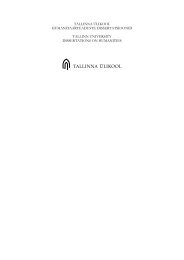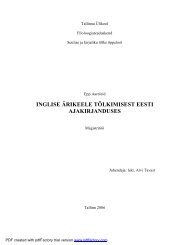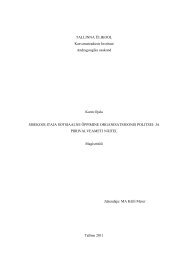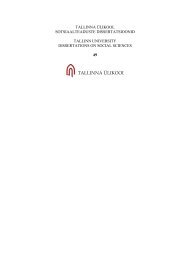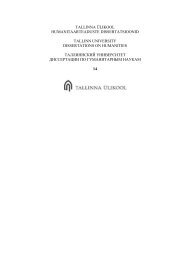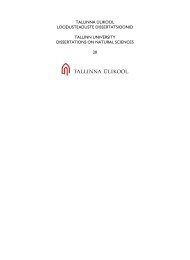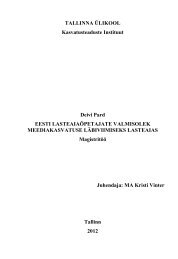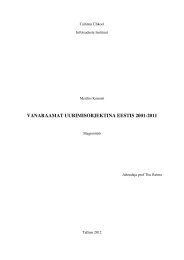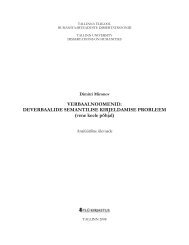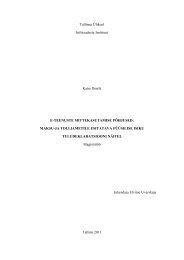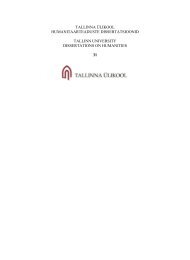Download (1157Kb) - E-Ait
Download (1157Kb) - E-Ait
Download (1157Kb) - E-Ait
Create successful ePaper yourself
Turn your PDF publications into a flip-book with our unique Google optimized e-Paper software.
at. Only 19% (4 of 21) strongly agreed that staff are motivated, while 48% (10 of 21) strongly<br />
agreed that the organisation of their libraries facilitates sharing. Unless there is a certain level<br />
of discontent among leaders with the current situation, it is likely that the state of knowledge<br />
sharing will not improve.<br />
As non profit organisations facing a serious challenge of justifying their relevance, Tanzania<br />
public university libraries need to add more value to their practices. There will be a need for<br />
libraries to create a culture that understands what knowledge is important to support the<br />
changing environment and put that knowledge into action. Little knowledge added to the<br />
routines will have a significant impact. As pointed out in section 2.1. Knowledge assets are<br />
governed by the law of increasing returns which makes it different from the traditional view<br />
of diminishing returns. A culture should not be content with accomplishing daily routines, but<br />
should consider what should be done to add value to the routines. Tanzania public university<br />
libraries should aim at adding value to their users through the acquisition, creation, sharing,<br />
and reuse of any aspect of knowledge relevant to their environment, internally and externally.<br />
They need to think outside the boundaries of current practices and services in order to keep<br />
up with the more rapid pace of change.<br />
When Drucker speaks about knowledge residing in the heads of employee as the most<br />
valuable asset of a 21 st century organisation, he refers to tacit knowledge. It is not procedural<br />
knowledge that is contained in manuals and protocols that libraries need to share to add<br />
value. Libraries need a culture that promotes informal knowledge sharing to facilitate<br />
capturing of tacit knowledge. Because tacit knowledge is communicated indirectly through<br />
human interaction, Nonaka and Takeuchi emphasize the importance of organizational culture<br />
in determining whether or not the exchange and communication of tacit knowledge will<br />
occur, see (Nonaka & Takeuchi,1995). Findings suggest that informal strategies for<br />
knowledge sharing are not used at all in Tanzania public university libraries. Of the 21<br />
respondents who filled in the questionnaire not a single respondent suggested any of the<br />
informal strategies listed in the choices. When they were asked to suggest other strategies<br />
apart from the list of choices given, the answer was still the same, none suggested any<br />
informal strategy.<br />
57



